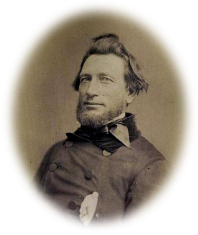14th.–At White House. Marched here to-day. It is known as the “Custis Estate,” and is now owned by the rebel General Lee, nephew of the wife of General Washton, and has on it a large family of negroes, about 300. ‘Twas here that General Washington overstaid his leave, the only time during his eventful life that he was known to be guilty of a breach of military discipline. Here he courted and married his wife. It is a most beautiful place on the banks of the Pamunkey river. It consists of about 5,000 acres and we now pasture our horses in a field of 1,000 acres of the prettiest wheat I ever saw. ‘Tis waist high, thick on the ground, just heading out, and stretches away down the river as far as the sight can reach. By the side of it is an immense plain of rich and luxuriant clover, on which is encamped our army of about 80,000, with all the concomitants of horses, mules, ambulances, transportation wagons, &c.
Close by our encampment runs the Pamunkey River, up and down which a crowd of transports, gun boats, steamers, schooners, and all manner of water craft, are constantly passing. And here again we get another view of the blasting influence of the institution of Slavery–the most beautiful country on earth, with a fine navigable stream opening to it the markets of the world, and yet in its whole course of 100 miles, it has not, in two hundred and fifty years, built up a town of one thousand inhabitants.
We found and captured on this farm five thousand bushels of corn and seven thousand bushels of wheat. On this place, too, crosses the railroad from Richmond to West Point, making it a strong strategic point.
One circumstance occurred on our arrival here this morning, showing the distance between officers and men, and so characteristic is it of the man, that I cannot refrain from recording it in my journal, as “food for thoughts” hereafter. We found some negroes drawing a seine in the river here. Some soldiers made a bargain to make a draw for them, fixing price and paying for it. The men had been on short rations of hard bread and salt meat for several days. Being compelled to carry their provisions in their haversacks, they can carry nothing but this simple food, whilst the officers, having transportation at command, take with them all the comforts of the country. Well, the net was cast, and whilst the drawing was going on, General H______ rode down to the beach and watched the operation with much apparent interest. The draught was nearly at shore; the hungry mouths, and watching eyes of the soldiers were being gratified by the anticipations of a joyous feast, for it was now beyond doubt that the net was cast at a propitious moment, and was coming in loaded with herring, shad and eels. But what right had common soldiers to indulgences like these? The General’s mouth watered too. The instant the draught was brought to land, the bayonets of the General’s guard bristled all around, and the General’s capacious bags received every fish. Off they were carried for himself and friends, without even a nod in acknowledgement. How ungrateful common soldiers must be not to love their commanders! How abject common soldiers are when compelled to submit to indignities like this, and dare not murmur! Now there was scarcely a soldier on that beach who would not have deemed it a pleasure to relinquish his right to what he so much coveted, at the request of his General, but to be driven from his rights by the bayonets of his legitimate protector!
Rains hard this P. M.
